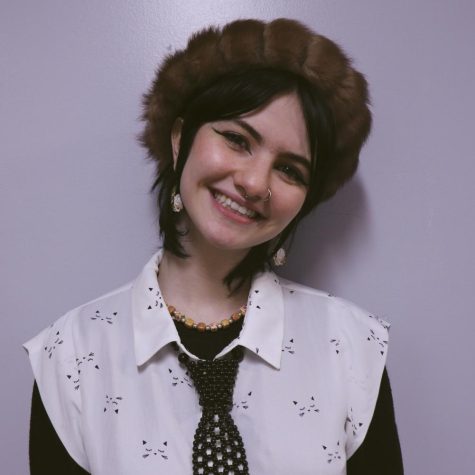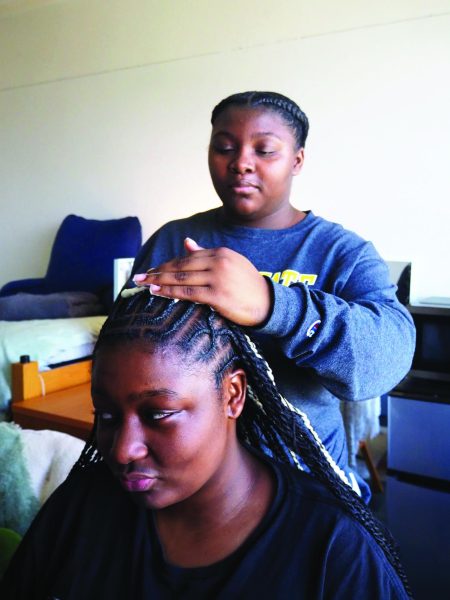Black professors share their thoughts on WSC diversity
March 17, 2021
According to the National Center for Education Statistics, only 8% of educators in the United States are Black. Wayne State is no exception to these staggering statistics, for there are only two Black educators on campus.
Christina Coffman is a Black graduate assistant who teaches English composition. She has been Student of the Year at Nebraska Indian Community College, earned a NASA fellowship, and has been on the dean’s list every year of her college career.
Coffman encourages students to think for themselves. Her favorite part about teaching is “having open and honest conversation with students who are willing to do so.” Coffman explained her experience teaching at Wayne State by saying, “It has been fun and interesting. I did not intend on going into education. Every day is a learning experience. I love putting on a show for my class every day.”
However, there are justifiable criticisms about campus and what Wayne State is doing to promote social justice. “Campus is not doing anything to teach students to be antiracist,” Coffman said. “Every school year there is chalk writing with racist undertones. I have been here for five years. Why do we keep giving these children chalk? There are always people with hate in their heart, so I wish during Week of Welcome that they establish a discussion and remind students that this behavior is not acceptable.”
When Coffman was an undergraduate, she worked in the upper cafeteria at Wayne State. There was an instance when a student was screaming obscenities such as, “I hate Mexicans.” “I approached him and told him that it was not the place for that,” Coffman said. “Then he made remarks about me being a “half-breed” because I am biracial.”
Darius Agoumba is a Black professor in the physical sciences and mathematic department. He helps new international students learn American culture and is a campus representative of the Boren Scholarships and Fellowships/Institute of International Education (IIE). He is a member of the Rotary International Club and the advisor of WSC’s Rotaract Club.
“The education in the Unites States does not allow American students to know more about other races,” Agoumba said. “Specifically, here in Nebraska they do not talk about people of color in school. In Wayne, there is not many people of color. There is tension between POC (people of color) and white individuals. I want people at my level of education to understand me but that is not the case. I have a communication problem with my freshmen but later I am a mentor to them. I understand that students out of high school see me and are shocked.”
When Agoumba discussed his experience with discrimination, he explains that if a professor where to play music in his office there would be no opposition. However, if he were to play music from his culture there would be a negative reaction. “There is no tolerance for differences,” Agoumba said. “We are different, so people have difficulties accepting who we are.”
“Diversity is promoted at Wayne; I belong to the Council of Diversity,” Agoumba said. “However, it is one thing to say but it is another thing to do. People promote diversity but it is simply not there. Preaching is different than believing.”
Having Black educators is something that is necessary and there needs to be more of. “I feel like I am helping Nebraskans to see one side of the world that they can’t see on their own,” Agoumba said. “What I bring to my classroom from where I come from is totally unique. New York, Philadelphia and California all have something in common, but I offer something new to the table. I prepare my students for real life challenges. I encourage my students by saying if I am here, you can also succeed.”









